Last year, Malta was one of the most googled travel spots in the world, and with over seven thousand years of history, it pretty much has it all. These islands have hosted the Phoenicians, the Romans, the Knights of St. John, Napoleon, and the British Empire, and today that rich history is impossible to hide. From its phenomenal fortifications and some of the oldest free-standing temples in the world to its eclectic and beautiful architecture, its natural wonders, beaches, and a culinary and wine scene worthy of taking a flight for—Malta is one of the most popular destinations in Europe, and yet, somehow, still a hidden gem waiting to be discovered with every sense.
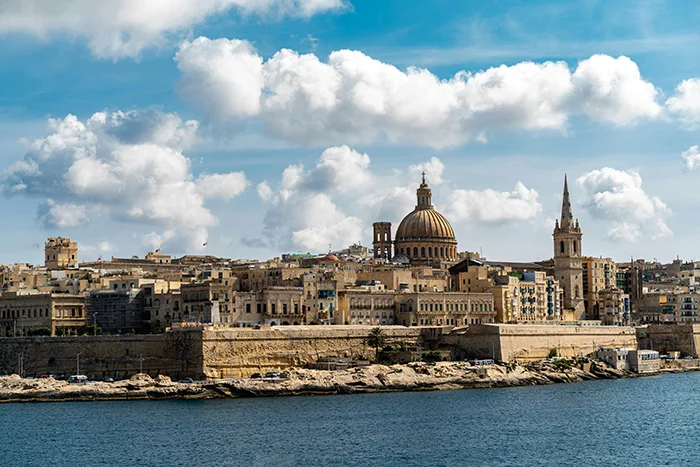
Gastronomy is one of those things that make these islands so special, and Jonathan Brincat, the chef of Noni, is one of the people responsible for it. His restaurant sits at the heart of Valletta, in an area steeped in over 250 years of history dedicated to food and hospitality. This charming location, surrounded by amber-hued buildings, has transformed over decades from a private residence to a jazz bar and a bakery and confectionery before becoming Jonathan’s very personal passion project.
This is the story of Noni, the person and the place.
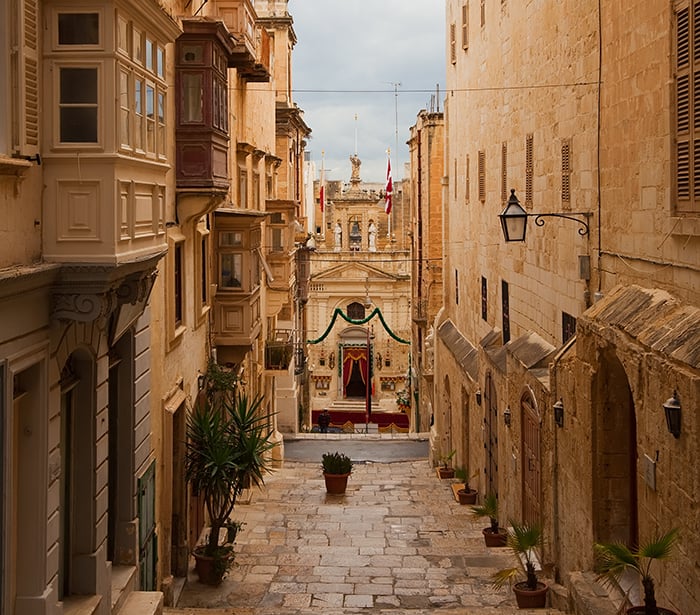
The Realization Of A Chef
Born and raised on the main island, Brincat’s fascination with food was sparked early, inspired by Sunday family feasts steeped in rustic Maltese fare. Family was the origin of it all and still to this day is a key element of Jonathan’s life. His learning started way before he could even realize it, on the sidelines of his family’s kitchen as an observer, tasting traditional dishes passed down by generations of his loved ones every night.
He started his cooking journey while working at the beach, setting up lounges and umbrellas during breaks and sneaking into the beach restaurant’s kitchen to help. That confirmed his choice to become a cook. After secondary school, at sixteen years old, he started working at a hotel since he wasn’t old enough to join the tourism institute. The real-life experience and earning money convinced him to keep working rather than pursue formal education, eventually moving to a five-star hotel.
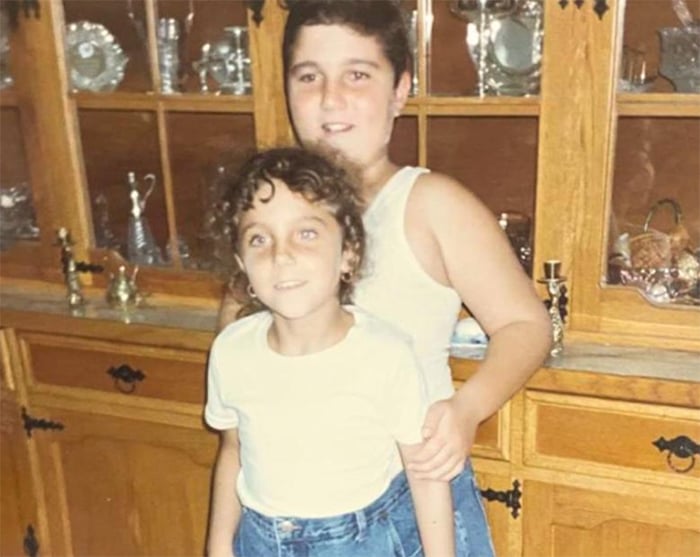
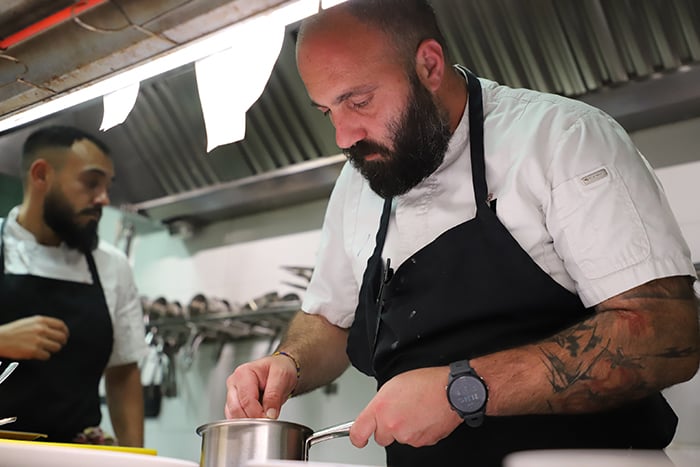
Different experiences followed: working with chef Victor Borg in Malta, going to London to work at the Corinthia Hotel, coming back home to take charge of a new place in the Intercontinental Hotel, leaving for Asia and Australia to expand his horizons, and ultimately meeting his now wife on the last stop before returning to Malta together to realize their dream of working in Valletta.
Upon returning, he took charge of a few restaurants in the area for a couple of years while dreaming of the perfect space to create his own place—one where he could guide Malta’s gastronomic evolution while honoring its past. When he found an old jazz bar and bakery in the heart of his desired area, he got to work.
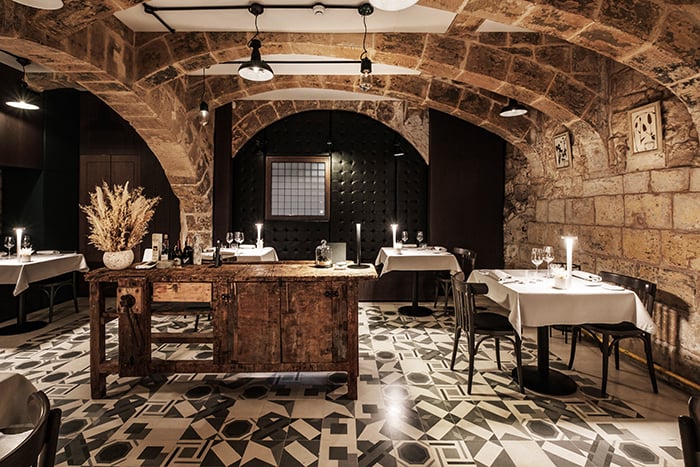
Creating Noni
2017 was a challenging but exciting year for Brincat: He was becoming a father, rebuilding his house, leading a kitchen, and looking for the place to realize his culinary vision, all at the same time. He could have slowed down and chosen one or the other, blaming timing, but there really isn’t a perfect time for things, and he simply pushed through to make his Valletta restaurant (and all the other important things happening in his life) a reality.
He always wanted to do fine dining, but when he opened the restaurant, Brincat was afraid that guests wouldn’t like it, and his first goal was to get the tables full. He opened in December with a more casual à la carte menu, with one sous chef and his sister, Ritienne, who is a huge part of the project and still manages the front of house, and with family and friends helping with service and cleaning.
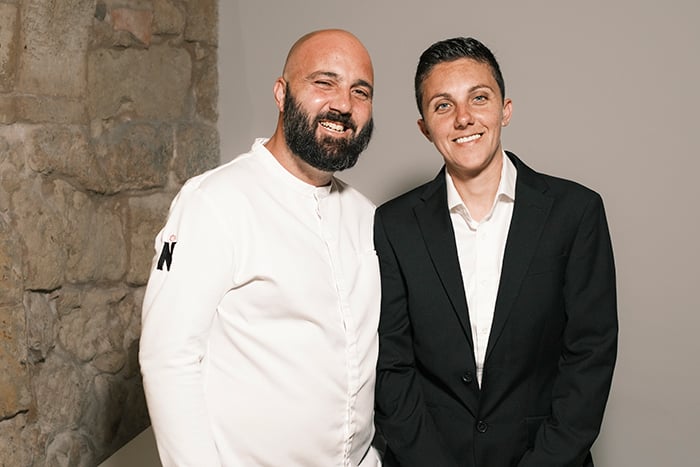
What emerged from those humble beginnings was something deeper than just another restaurant. Noni became the place where Brincat could finally bring his own voice to the table—realizing his long-held goal of becoming a chef on his own terms while creating dishes that gave new life to traditional Maltese cuisine. Warmth, familiarity, and flavor became his pillars, and even though the project and his culinary style have evolved since then, these three values still define the restaurant to this day.
“What I’ve always done at Noni is my interpretation of what I grew up eating from my mother and grandmother. That’s when my real love for food began. When I was at home, I was always intrigued by cooking and for my family, going to a restaurant was very rare. For us it was all about home-cooked meals.” explains the chef .
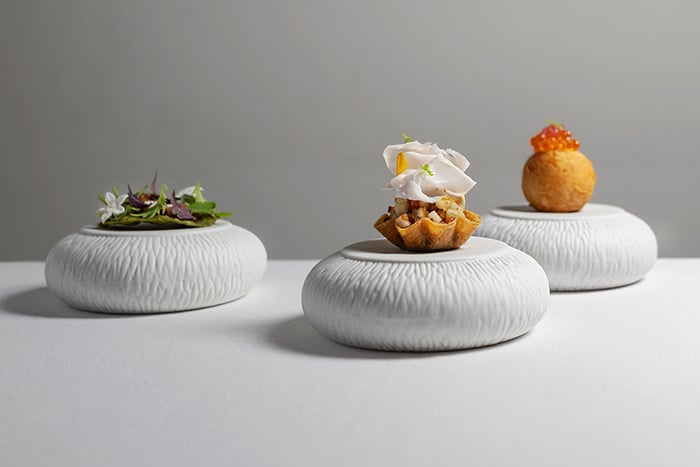
The Menu And Culinary Philosophy
Malta’s dining scene is undergoing a renaissance. Once overshadowed by tourism-trap eateries, its culinary identity now centers on a balance between traditional food and fine-dining excellence fueled by passionate chefs like Brincat. Noni mirrors this shift: honing a menu that captures the island’s sun-drenched terroir, rich fishing waters, and layered past. His focus on peak-season produce and local purveyors doesn’t only spotlight authenticity—it builds a sustainable culinary ecosystem.
Today, the tasting menu is the only format, a conscious choice fostering zero-waste creativity. The Michelin Guide highlights that Brincat’s “visually appealing, well-balanced dishes are crafted with precision,” noting his sustainable approach and staff well-being initiatives. But here, the technique doesn’t overpower the soul, and that’s what makes it all work. What stands out is the honesty, the warmth, and the flavor.
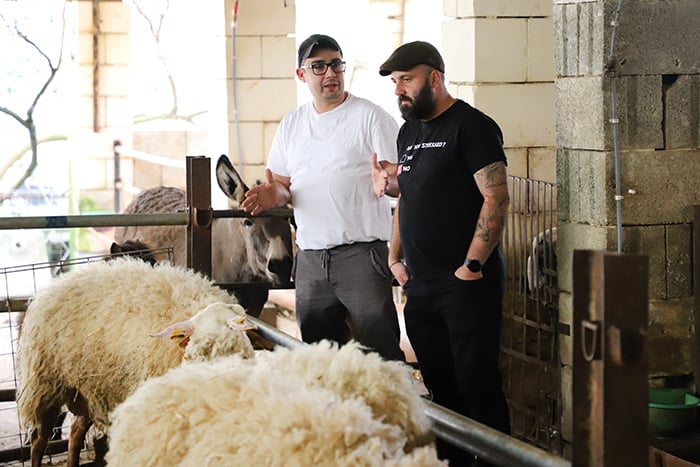
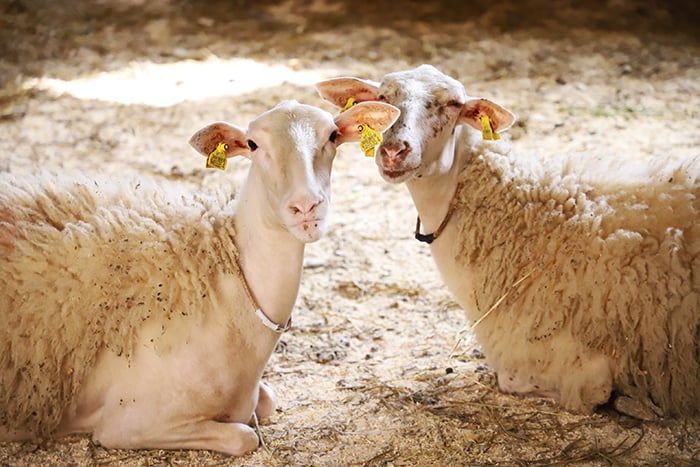
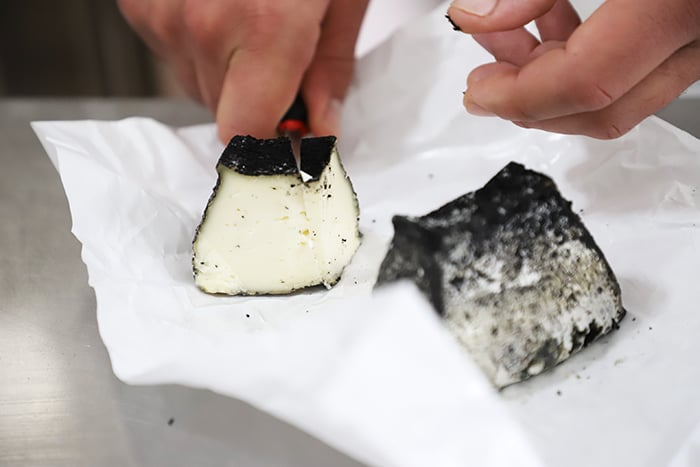
When welcomed into a Maltese home, guests are often greeted with a table filled with tempting bites, also known as tnaqqir, that showcase local flavors. At Noni, Jonathan starts the experience by doing the same, in his own way, with an array of beautifully crafted snacks alongside a sourdough ftira and addictive butter. Then the feast continues with Jerusalem artichokes with fratell cheese, smoked pike roe, and lemon thyme—a favorite, not to mention the lasagna of rossi prawns, butternut squash, seaweed, and black lime oil, rich, powerful, and done in a way in which the product is still the main character.
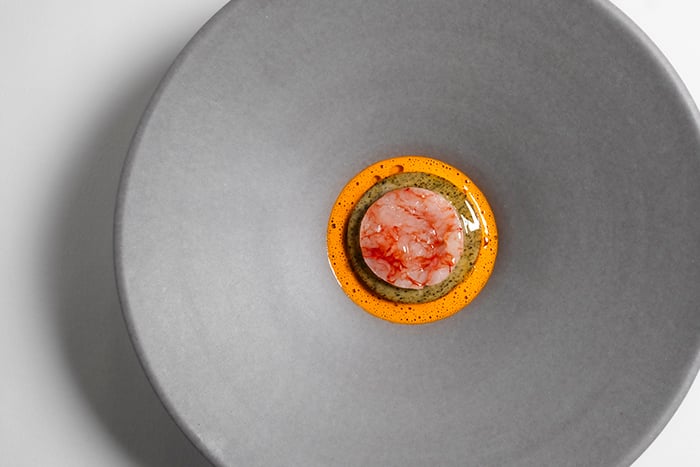
The signature snails and potato dish was also memorable and served with parsley root, black pepper, and Périgord truffles, followed by a St. Peter fish with squid, bell pepper and citrus sauce and caviar, and a Maabba free-range rabbit with vine leaves, garlic, and white wine that finds its origin in the famous Maltese-style fried rabbit in garlic. All dishes can be paired with a very exciting selection of Maltese wines or with a non-alcoholic pairing composed of different creations by the team.
The sweet part didn’t disappoint—on the contrary, the Ta’ Vitor Orchard citrus pre-dessert cake done with premium olive oil and a magical and explosive hundred and thousands made of citrus, the cheese platter of selected artisanal cheeses from the island, and the single-origin chocolate with passion fruit, caramel, and coconut were beautiful displays of technique and exactly what any guest expects as lush dishes to end an outstanding meal.
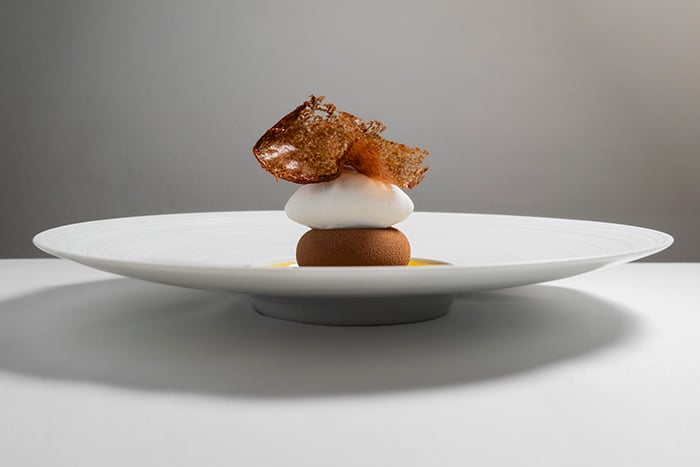
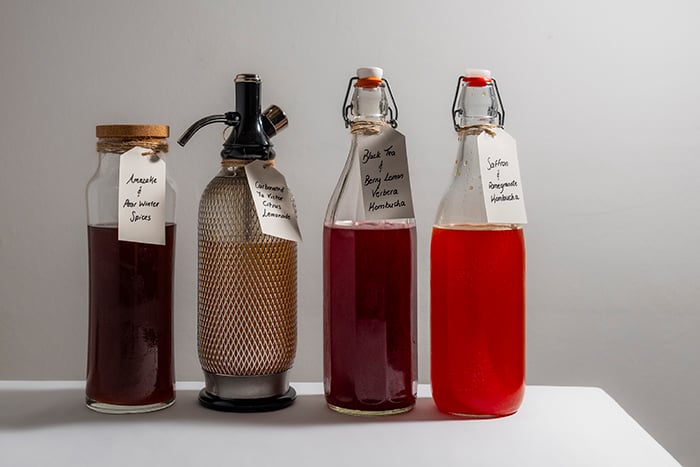
One Dish
Every step of the menu is a delight. But there was one dish that really made an impression on the table: the Jerusalem artichoke with fratelli cheese, smoked pike roe, and lemon thyme. It was complex but simple, packed with flavor and that “yummy” factor that makes guests sigh. But how does the chef achieve this? It always starts with the ingredient, one that his mother always used to make at home.
“We start creating every dish by selecting an ingredient and making sure to respect it as much as we can. We make seven of the components of that dish with the Jerusalem artichoke, but done in very different ways and with different techniques, to achieve depth, different textures, and flavor profiles. This also helps us maintain our sustainable approach and use the entire product. That all comes with a lot of R&D, time, and trials. My philosophy is for every component of the dish to have a purpose, and I don’t add things lightly or just because,” explains Jonathan.
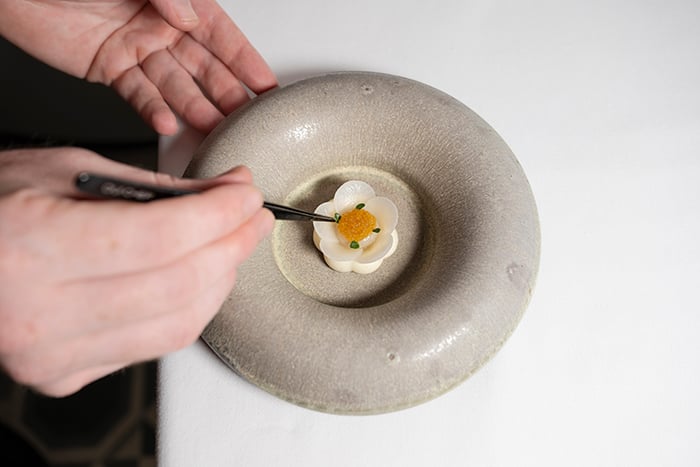
The intersection of upholding Maltese traditional flavors, pushing boundaries, and being able to show his own cooking style and voice is the goal for Brincat, and for him, this ingredient ticks all the boxes. His mother would peel the Jerusalem artichokes, put them in water with salt, olive oil, lemon, and braise them slowly to mash them up with what’s left of the cooking liquid and more olive oil and seasoning. That is a part of the dish today, combined with other preparations and refined to achieve a modern, personal vision of the Malta of Brincat.
Noni isn’t just a restaurant—it’s Jonathan Brincat’s manifesto. It’s a nod to Malta’s past, a celebration of Maltese bounty, and a modern kitchen operating with humility, precision, and passion. It stands as a testament to what happens when heritage and technique meet purpose.
Restaurant Noni
211 Republic Street Valletta, VLT 100, Malta
www.noni.com.mt
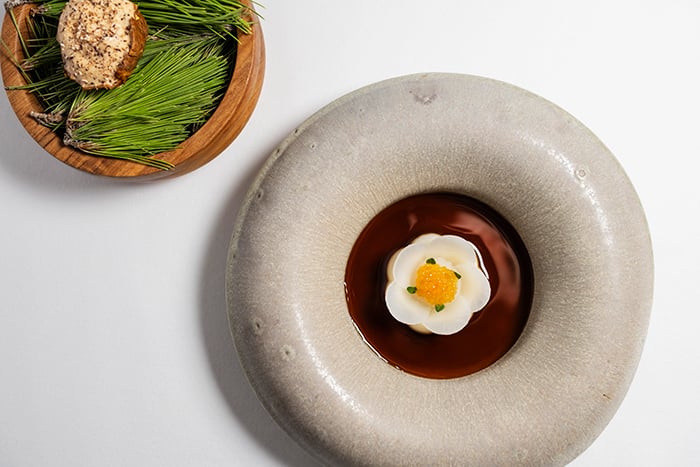



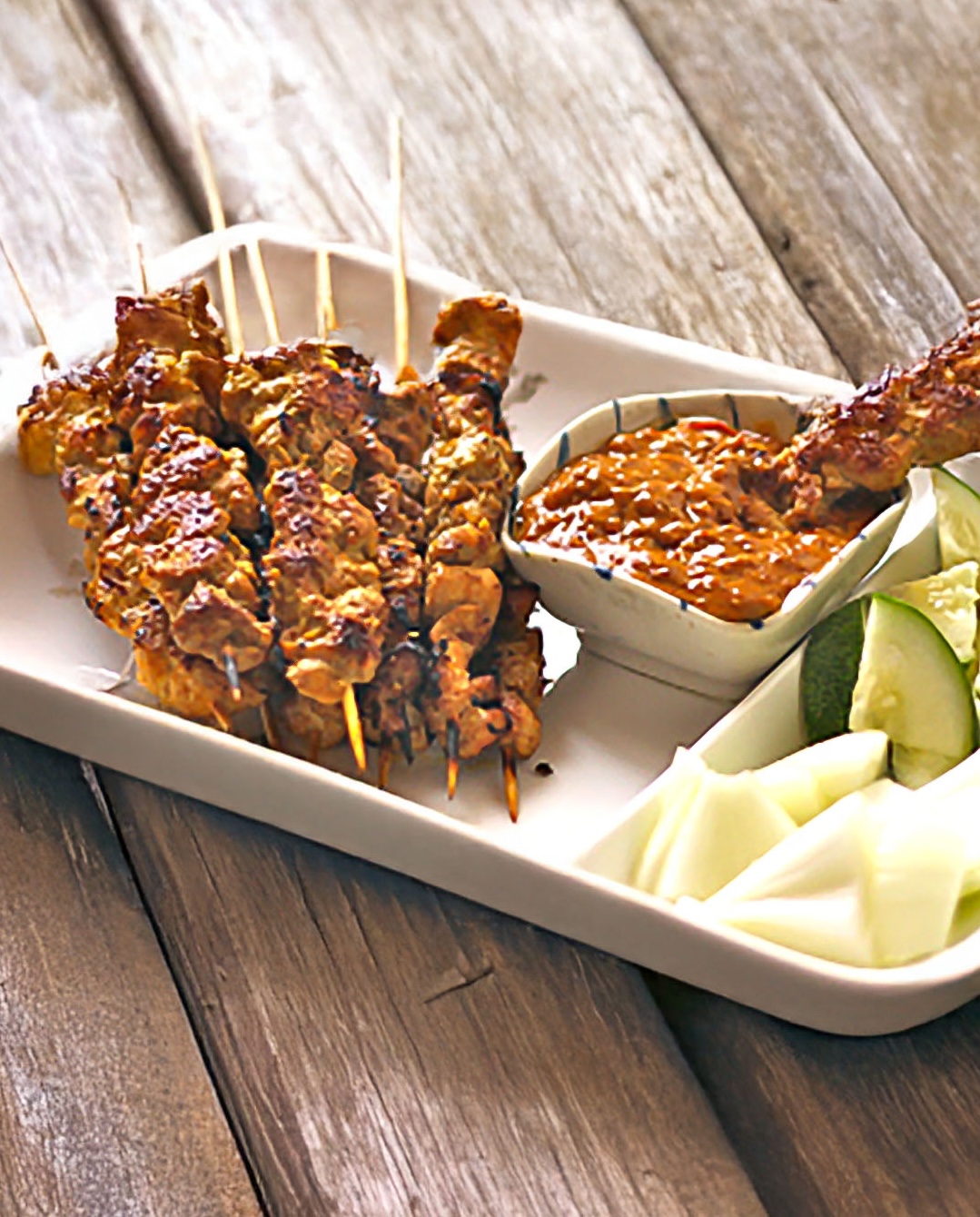

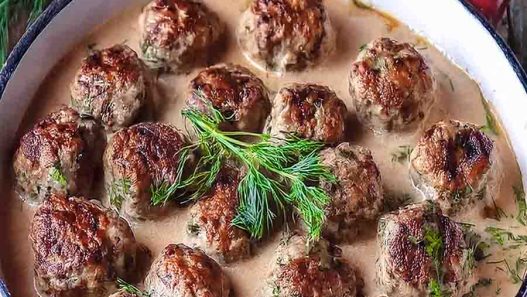
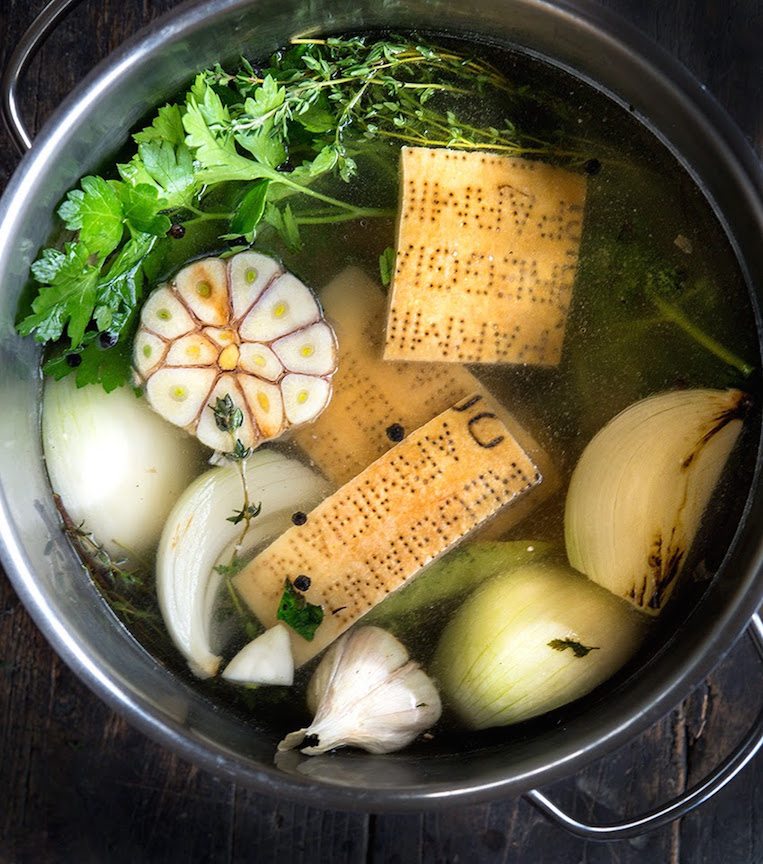
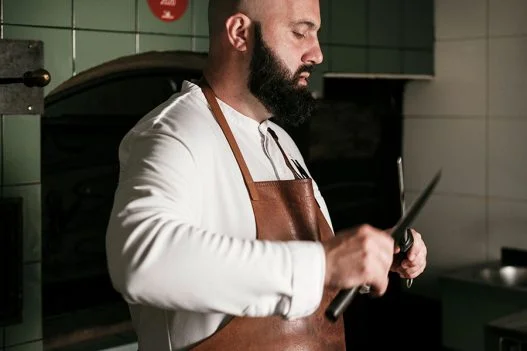
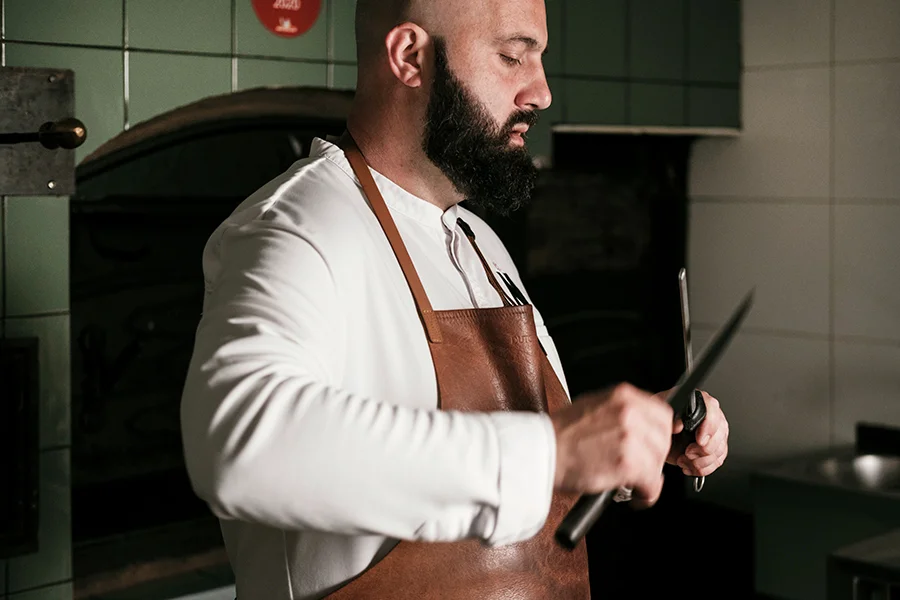
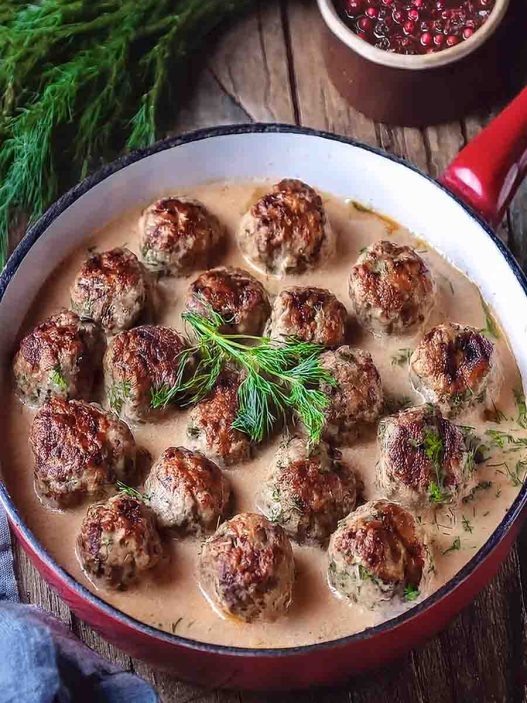

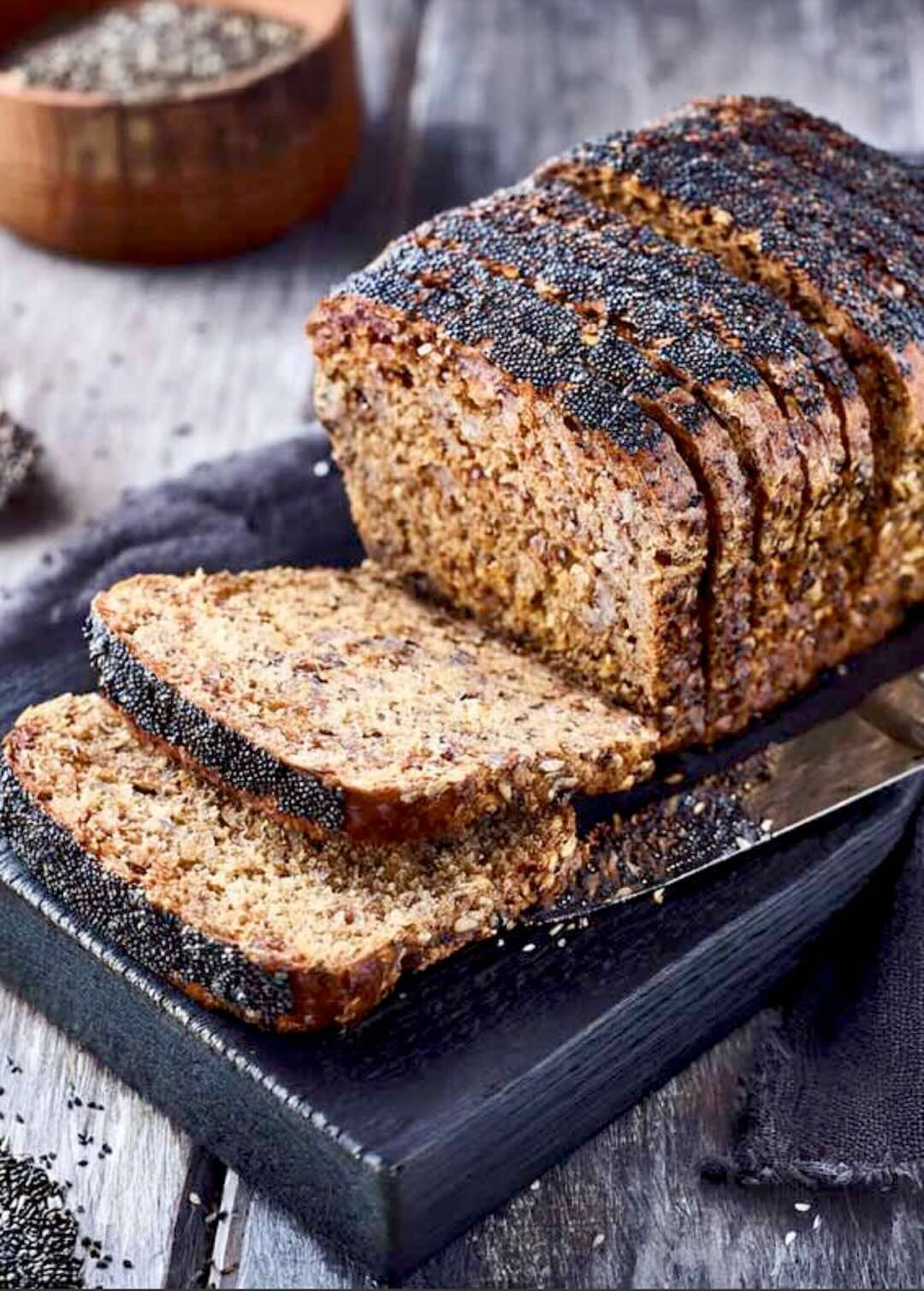
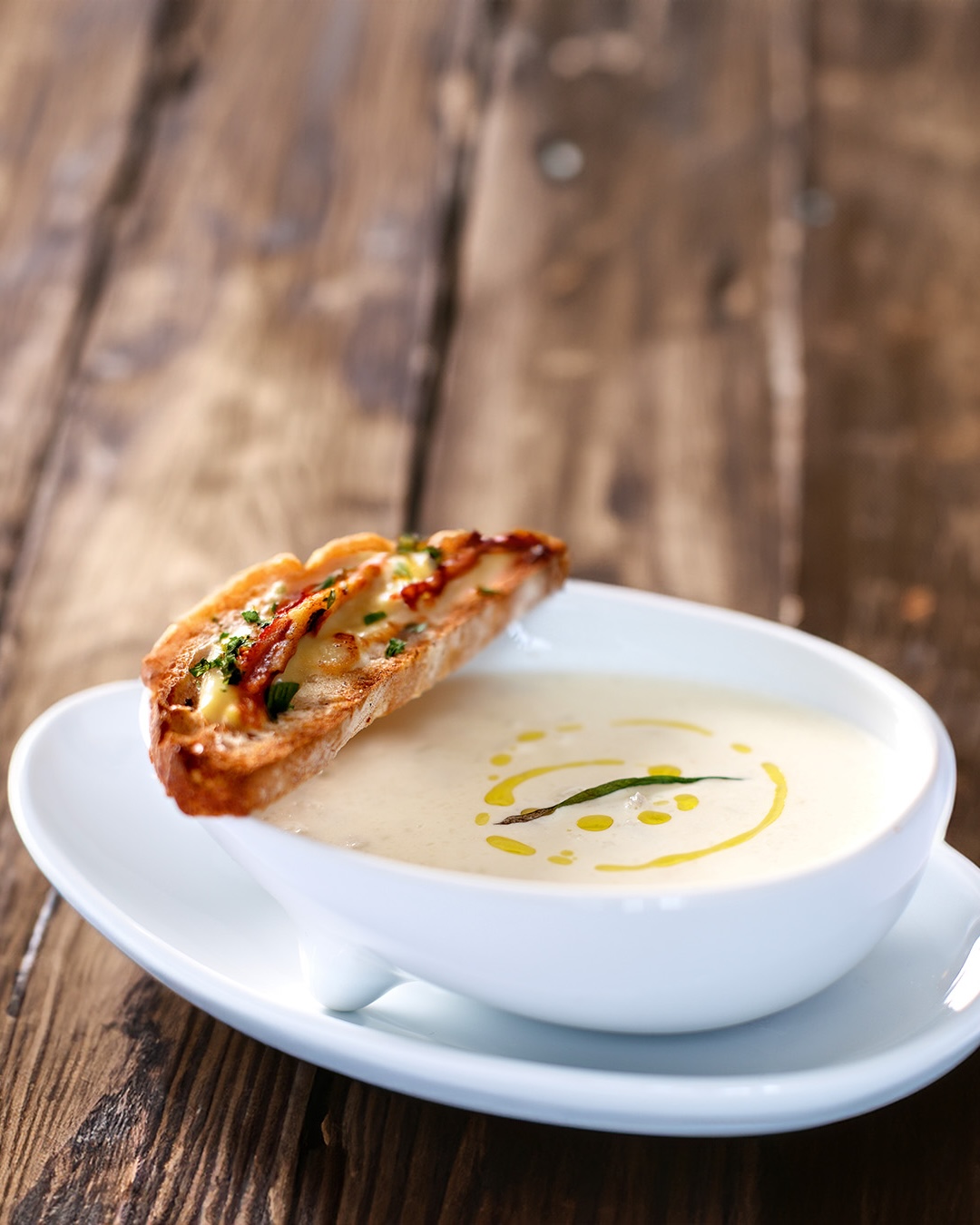
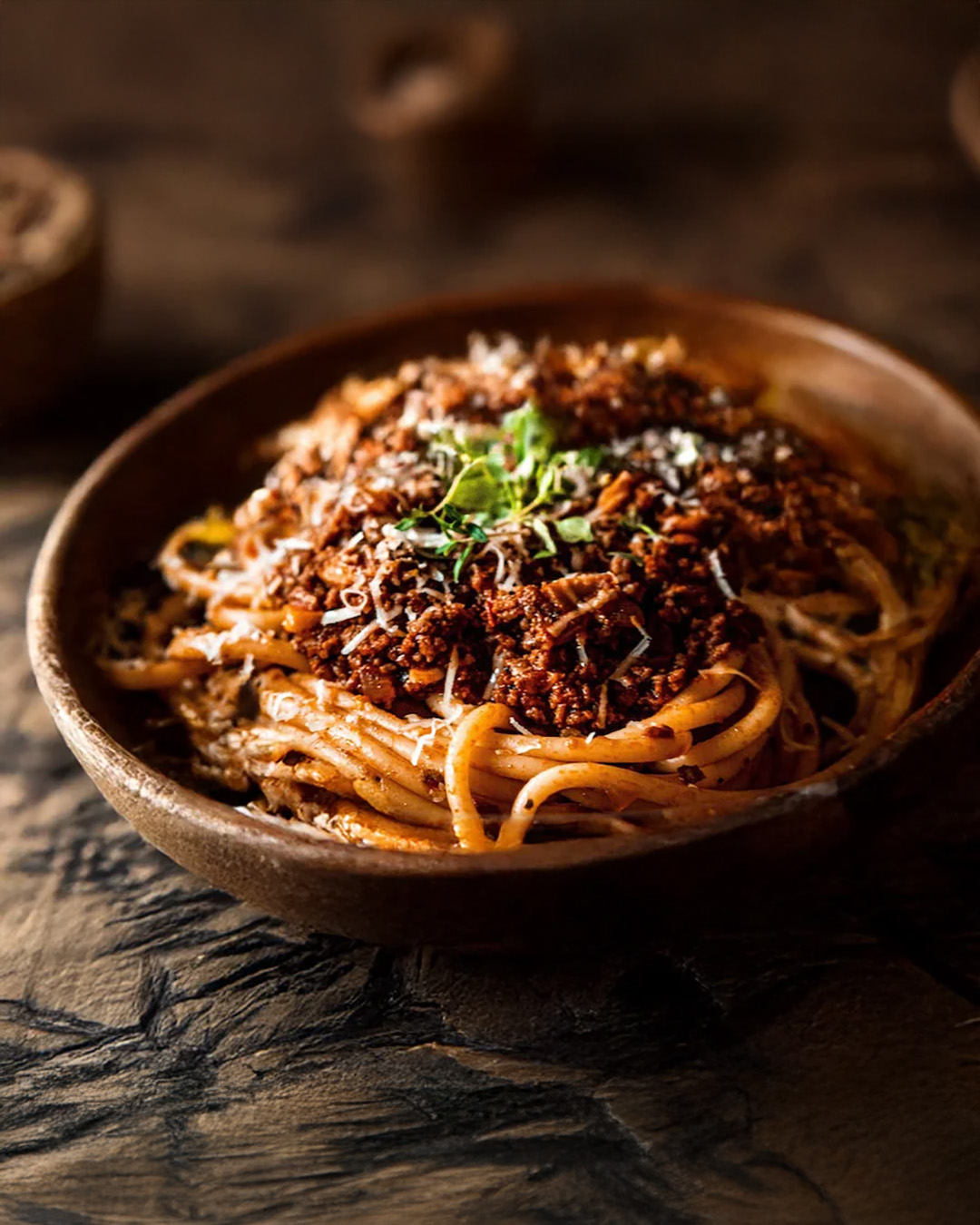
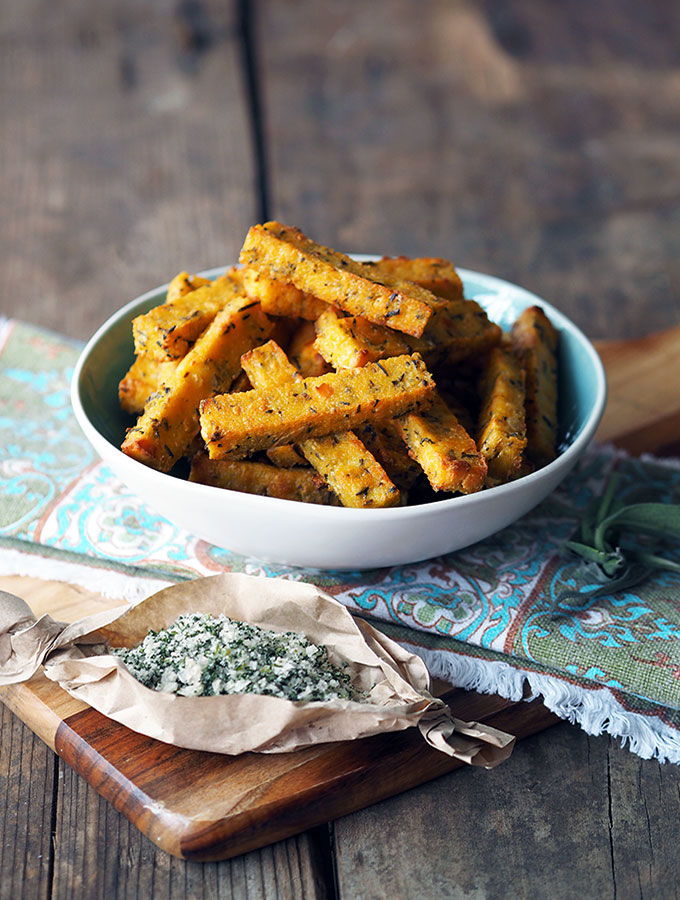
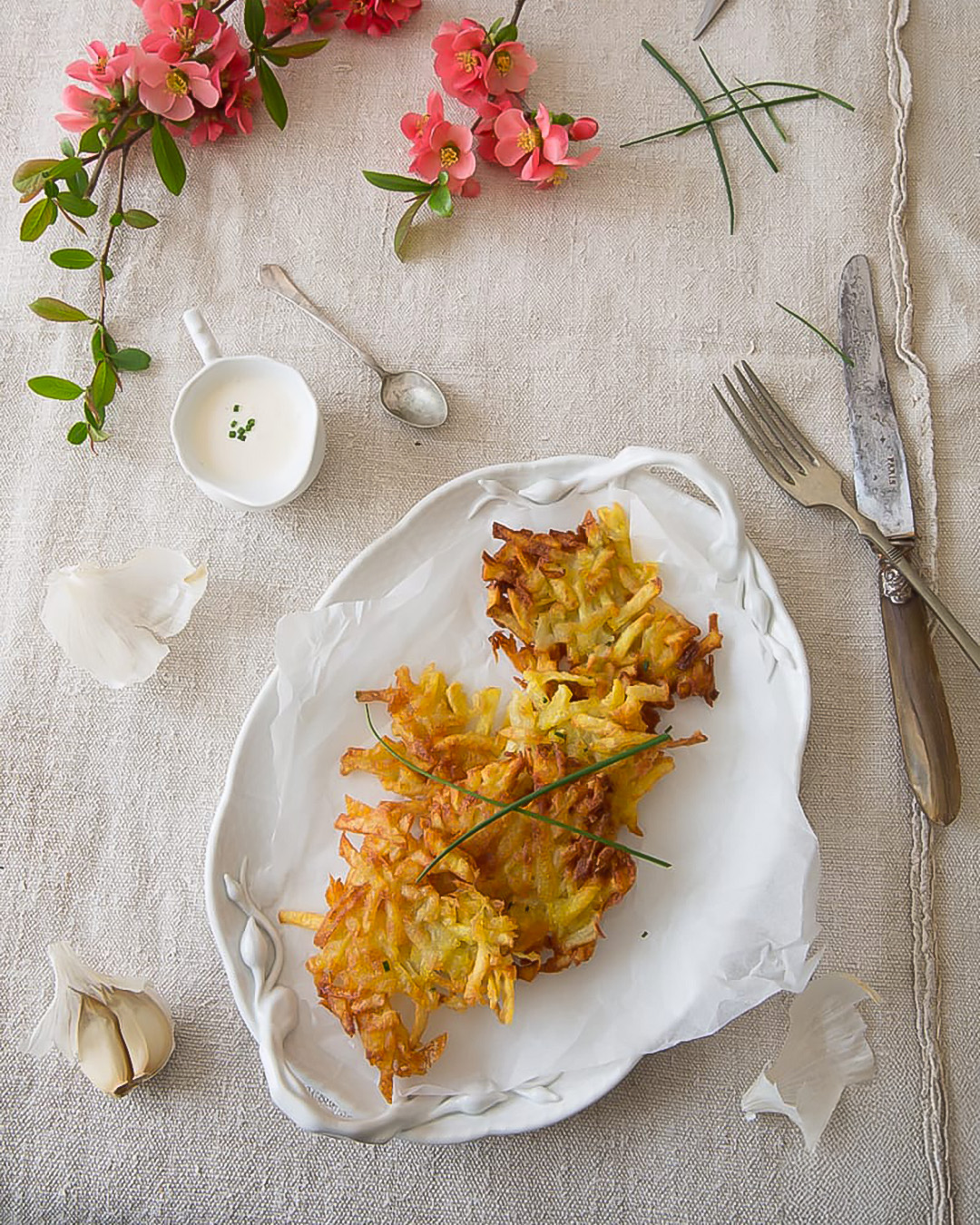
I have been to Noni twice and it is a wonderful experience. Feels really unique in flavors and the visuals are stunning.
Great story, haven’t been to Malta but this looks like a great reason to do so!